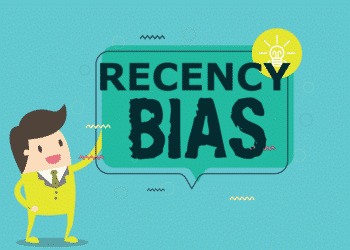Psychological mistakes in forex trading are relatively common. They refer to errors that you make by not managing your emotions well. Indeed, we have seen some excellent traders fail just because they did not manage their emotions well. This article will look at some of the most popular psychological mistakes to avoid in forex trading.
Fear of Missing Out (FOMO)
FOMO is a very popular phrase in the financial market. We have seen it in many ways in the market. For example, we saw many traders rush to buy cryptocurrencies like Shiba Inu and the Internet Computer. Most of those who bought the coins did so because they wanted to be involved in the next big thing after seeing the success of Dogecoin. Further, we saw many retail traders rush to buy shares in meme stocks like GameStop and AMC.
For starters, FOMO in forex is the process of buying a currency pair since everyone is buying and shorting it because other people are shorting it. Some traders have used the strategy and succeeded. However, at times, those who use it end up failing since they enter trades without doing enough research.
Here are several ways of preventing the FOMO mistake.
- Have a trading journal – A journal can help you boost your discipline in forex trading.
- Risk management – Always have proper risk management strategies like stop-loss.
- Have a plan – Have an entry and exit plan and stick to it.
- Dig deeper first – Always dig deeper before you open a trade. Study the reasons why an asset is either rising or falling.
Moving the stop-loss
A stop-loss is an important tool that stops trades automatically when a certain loss threshold is reached. For example, if you buy the EURUSD at 1.1280, you could place a stop-loss at 1.2000. In this case, the stop-loss will close the trade automatically if the price falls to 1.1200. As a result, the stop-loss can help you minimize your losses and stay disciplined. In fact, most successful forex traders use the tool for all their trades.
A common psychological mistake when using the stop-loss is to move it to prevent it from being triggered. In the example above, the trader will likely move it to 1.1170 if it approaches 1.1200. They move the stop-loss as they hope that the price will start reversing and become profitable ultimately. They are also not convinced that their trade is actually making a loss. I have been a victim of this mistake in the past.
You can avoid this mistake by adding a stop-loss on all your trades and sticking with it. At times, you could place a trade and leave it running. In my early days of trading, I used to open trades and go to attend to other issues to avoid this mistake.
Fear of not trading
Overtrading is a common psychological mistake that many new forex traders make. They assume that opening more trades will lead to more profits. However, in many cases, traders increase their odds of losing money when they open more trades.
Another relatively unknown psychological mistake is the fear of trading. This is where traders either stay in a demo account for long and fear moving to a live account. It also happens when traders are fearful of initiating trades, fearing that they will lose money. By doing so, traders lose opportunities by not entering trades even when there are good setups.
You can avoid this trading mistake by doing several things. First, you can have a well-tested strategy to use. For example, your plan could involve buying a currency pair only when two Moving Averages make a crossover. Second, you can avoid it by trading using small lot sizes and low leverage as you build your confidence. Third, you can avoid this fear by spending more time in a demo account.
Martingale strategy
The Martingale strategy is an approach that is based on the mathematical concept of probability. The strategy opines that you should open a bigger trade in the same direction if your first one makes a loss. For example, if you bought 0.2 lots of the EUR/USD and you lose, you should open another buy trade with a lot size of 0.4. The idea is that there is a probability that one of your future trades will be positive and help you recoup your losses.
While the Martingale strategy works well in gambling, my experience shows that it tends to lead to substantial losses in forex trading. It is even worse when you have a small forex account.
You can avoid this psychological mistake by using other strategies that are relatively easy to use. For example, you could use simple strategies like trend following and pairs trading, and apply the anti-Martingale system.
Looking at trades continuously
Another popular forex trading mistake involves opening trades and following their performance constantly. I used to go through this mistake as a new trader. In most cases, even when your thesis is right, you will be tempted to close your trade if you see it in the red. This mistake is more so common among traders who use their computers to open trades and use their smartphones to follow them.
You can avoid this psychological mistake by setting up your trades and adding stop-loss and a take-profit. These stops should be placed based on your risk and reward ratios. Further, you could avoid this by avoiding the mobile versions of MT4 and MT5 since they will mostly incentivize you to intervene when the trades go south.
Summary
At times, psychological mistakes could do more harm to a trader than other normal mistakes. In my career as a trader and educator, I have seen many excellent traders lose money simply because they could not control their emotions. This article has looked at some of the most popular psychological mistakes and how to avoid them.







